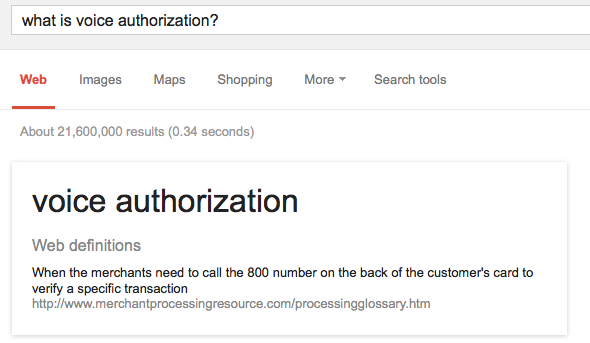Tips
A Q&A With Viceland’s Host Of ‘Hustle’ John Henry
March 5, 2020 Entrepreneur and investor John Henry, who also hosted TV show ‘Hustle‘ on Viceland, recently spoke with deBanked Chief Editor Sean Murray about his experience as a young successful entrepreneur (Q&A is below). Henry will be a special guest speaker at Broker Fair 2020 on May 18th in New York City. YOU WON’T WANT TO MISS IT!!!
Entrepreneur and investor John Henry, who also hosted TV show ‘Hustle‘ on Viceland, recently spoke with deBanked Chief Editor Sean Murray about his experience as a young successful entrepreneur (Q&A is below). Henry will be a special guest speaker at Broker Fair 2020 on May 18th in New York City. YOU WON’T WANT TO MISS IT!!!
—–
About John Henry
Voted to Forbes’ 30 Under 30 and Ebony’s Power 100 lists – John Henry is a Dominican-American entrepreneur and investor. Henry started his first business at 18, an on-demand dry cleaning service for the Film and TV industry in New York City, with clients such as The Wolf of Wall Street, Boardwalk Empire, Power, and more. Henry led the company through its acquisition in 2014 — founding and selling his first business by the age of 21. On the heels of his first win, Henry launched Cofound Harlem — a non-profit incubator that aims to foster a robust tech ecosystem North of 96th street in New York City. Cofound Harlem has launched numerous high-growth companies in Harlem, gaining recognition from Fast Company, TechCrunch, Business Insider, and more. He is a former Partner at Harlem Capital, a diversity-focused early stage venture capital firm on a mission to change the face of entrepreneurship. Henry is also the host of VICELAND’s latest show, HUSTLE, which is Executive Produced by Alicia Keys and focused on helping scrappy entrepreneurs grow their business to the next level.
—–
Q (Sean Murray): You started your first business at 18 but what made you want to start one?
A (John Henry): It was driven by necessity more than a desire to be an entrepreneur, but I did exhibit some of the traits that pushed me towards that path. Entrepreneurs tend to have a history of non-conformity where there’s no pre-chartered path and in an environment that demands conformity, anyone that likes to express their own views comes up against a lot of friction. So, for me it was necessity but also part of my character to do things differently.
Q: What kind of lessons did you learn from running a business at such a young age?
A: It’s a serious game and it’s full of responsibility. I was telling myself at one point that I was just 18 and so the struggles I faced running a business could be overlooked because of my age, but the world doesn’t care how old you are. If you’re running a business, there’s no way around the responsibilities it demands.
The other thing is, when you come up against really tough situations, you need to be brave and have courage to go through those moments. I’m glad I had the courage in them. Once you take them head-on, you come out feeling better on the other side.
Q: As a former partner of a Venture Capital firm, what’s the #1 mistake you saw entrepreneurs and business owners make?
A: You’ve got to have macro understanding and micro-chops. Everything is connected, it’s not just knowing your business but knowing where you’re situated in the economic or market cycle and understanding what customer sentiment is. That’s what a lot of entrepreneurs miss. Like if your idea is to make a mobile app, that’s great, but how many apps are already out there? How long have apps been part of the market already? What’s going to make your app stand out from every other app? And this doesn’t apply just to startups, but also existing companies. Every 3 months, you should be asking yourself the business question and evolve if necessary. The hardest part though is when your gut is telling you you’re right but every other person out there is telling you you’re wrong. And that’s something you’ll really have to figure out.
Q: Why has helping minority entrepreneurs and businesses been so important to you?
A: I’m not usually asked why, but I was seeing less and less minority representation among entrepreneurs that were receiving capital. There are some systemic factors that make it harder to get ahead but at the same time people can become inclusive to the point where they’re becoming exclusive. So, I think it’s about helping those that are on their way to overcoming tremendous odds to get far.
Q: Real estate, what can you tell me about your foray into that market?
A: I can say it’s the best business that I have been in so far. Real estate is the #1 fundamental building block of wealth. When I first got into it, I was shocked that you could put down 20% and the bank would put in the other 80%. This is a game of physical assets and I’m glad I came across it when I did. I’m currently building a bedrock of business around real estate, my preference being residential multi-family apartments.
How to Respond to Negative Press
January 3, 2019 Wondering what to do about negative press? deBanked spoke to some Public Relations professionals about helpful techniques to manage the situation.
Wondering what to do about negative press? deBanked spoke to some Public Relations professionals about helpful techniques to manage the situation.
“When it comes to a negative story, we advise our clients to bridge back to something they are comfortable talking about,” said Bill McCue, Executive Consultant at Indicate Media.
 Bill McCue, Indicate media
Bill McCue, Indicate mediaMcCue said this is known as “bridging.”
“If you’re asked a question about something you don’t want to talk about for whatever reason, you can use transitional phrases like ‘You know that’s an interesting point, but what the real story here is…’ or ‘What we believe is truly the most important thing to talk about is…’ And just keep bridging from a topic you’re not comfortable addressing to a topic you are comfortable addressing.”
McCue noted that politicians and professional athletes are excellent at this. His favorite example is hockey players, who never talk about themselves. When they get a question about their own performance, they always “bridge” to something like the strength of another player or the coach or the entire team.
McCue also advises all clients, whether they’re overcoming negative press or not, to speak in simple terms, and avoid jargon or acronyms.
“Never assume that the reporter is an expert on your industry,” McCue said. “He or she might be writing about [multiple] topics throughout a given business day. Or they may have been writing about real estate last week and now they’re writing about small business lending…So never assume a certain level of expertise.”
 Jason Geller, JMediaHouse
Jason Geller, JMediaHouseIf your industry has gotten negative press, but your company in particular has not been targeted, Jason Geller, Founder of New York-based public relations firm JMediaHouse, said that no response is often the best response.
“Unless you have established clear goals and a message you must put out, or if the allegation is serious, the best response in most cases is nothing. Ignore it,” Geller said. “Don’t give the story life. By opting out you’ve robbed it of the oxygen it needs to continue on.”
Geller also said that if the reporting contained inaccurate information, then the company must first provide the correct information to the reporter or blogger. This, he said, “opens up a great opportunity to leverage the situation and strengthen your relationship with the journalist, and to allow him or her to get to know your company and clients better.”
If a given negative story is so bad that it truly warrants a response, Geller said that it’s critical first to research the writer or blogger before responding.
“What have they written about in the past? Do they have a history of putting out negative commentary? Have they had a bad experience with your product or brand? Once you have the answers to these questions, you’ll be able put together a much more concise and educated response,” Geller said.
What’s a Broker To Do? Industry Execs Offer Their Insight
March 12, 2018
Below are excerpts from separate interviews with four industry executives when asked for tips or advice for brokers:
“I would just say to be in it for the long haul. Play the long game. Be the kind of quality partner that you would want in return. There are some brokers and referral sources in this space who see merchants only as a commission check, not as the going concern and business entities that they are. Some brokers are playing the short game, which is unfortunate, because brokers can be in a very powerful position with their clients (merchants) – they need to use that power wisely. If one were to carefully look at a business and its working capital challenges, and then tried to do what was in the best interest of that business in the long run, a broker could be creating a revenue stream for a longer period of time – on a healthier business – and in return creating a more sustainable brokerage platform for themselves. Be open and transparent – sometimes losing a deal due to full transparency can lead to many multiples of that volume with a loyal funding partner.”
– Bill Gallagher, President and Managing Partner, CFG Merchant Solutions | Read full interview
“Choose industries that you excel in—and own them.
Concentrate your marketing efforts on your core customers and target those that meet a lender’s criteria. It’s not the quantity of leads you deliver, it’s the quality—and that will save you time and money. Look for customers in growth stages, not those that are desperate for funds to stay afloat. This will also result in more renewals.
And find a lending partner with a strong brand, as this opens doors to new customers.”
– Michael Marrache, CEO, BFS Capital | Read full interview
“It is not an easy business and not for everyone. It takes quite some time – years – to either build an organization or to become a seasoned pro that truly understands the space. It is also very fast paced and ever changing, so you have to really commit and take the space seriously if you want to be successful.”
– James Webster, CEO, National Business Capital | Read full interview
“Brokering is a tough marketplace right now. I don’t want to say [it’s] saturated, but it’s getting pretty close…Everyone’s getting a million phone calls and mailings and the marketing is going crazy, and the expense is going up. So you really have to find a way to differentiate yourself.
That’s really the biggest thing about being a broker, besides quality service. It’s more: What kind of niche can I get into? How can I break into the market without having to spend like a million dollars a month on marketing? The biggest thing is: What can you do differently?”
– Evan Marmott, CEO, CanaCap | Read full interview


 If you noticed a shuffle in search rankings for industry keywords last night, it’s because Google unleashed Penguin 2.1.
If you noticed a shuffle in search rankings for industry keywords last night, it’s because Google unleashed Penguin 2.1.
 I’ll say it for the hundredth¹ time, the advantage of
I’ll say it for the hundredth¹ time, the advantage of  “I know you do a million in gross sales monthly but since you process only $5,000 in credit cards, we can only approve you for $7,000.”
“I know you do a million in gross sales monthly but since you process only $5,000 in credit cards, we can only approve you for $7,000.”  Being my first post in the
Being my first post in the 

 I’ve watched this happen a lot over the last several weeks, particularly on Google Plus. Businesses both large and small join a community, start posting links to their blog and then they get banned. Some are posting crap and others are posting genuinely good content, but the good content is being pushed on people and nobody likes that.
I’ve watched this happen a lot over the last several weeks, particularly on Google Plus. Businesses both large and small join a community, start posting links to their blog and then they get banned. Some are posting crap and others are posting genuinely good content, but the good content is being pushed on people and nobody likes that. 


























